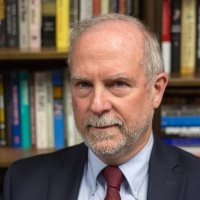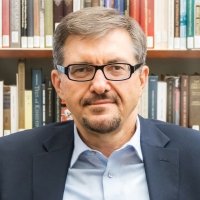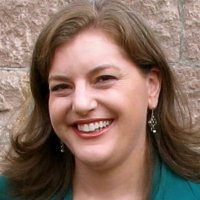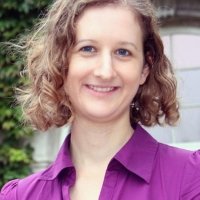Not One Inch: America, Russia, and the Making of Post-Cold War Stalemate
Based on secret records of White House-Kremlin contacts, Not One Inch shows how, in the 1990s, the United States overcame Russian resistance to expand NATO, ultimately bringing the alliance to a billion people. But it also reveals how Washington’s hardball tactics, combined with Moscow’s self-inflicted wounds, undermined a potentially lasting partnership during the decade culminating in Vladimir Putin’s rise to power. On the 30th anniversary of Soviet collapse, Sarotte shows how NATO expansion transformed the era between the Cold War and COVID.
M.E. Sarotte is the Kravis Professor at Johns Hopkins University, a researcher at Harvard’s Center for European Studies, and a member of the Council on Foreign Relations. She earned her AB at Harvard and her PhD in History at Yale. Her books include The Collapse: The Accidental Opening of the Berlin Wall, listed as a Best Book of 2014 by The Economist and the Financial Times, and 1989: The Struggle to Create Post-Cold War Europe, a Financial Times Best Book of 2009.
The Washington History Seminar is co-chaired by Eric Arnesen (George Washington University and the National History Center) and Christian Ostermann (Woodrow Wilson Center) and is organized jointly by the National History Center of the American Historical Association and the Woodrow Wilson Center's History and Public Policy Program. It meets weekly during the academic year. The seminar thanks its anonymous individual donors and institutional partners (the George Washington University History Department and the Lepage Center for History in the Public Interest) for their continued support.
Speaker

Moderators

Woodrow Wilson Center

Professor of History, The George Washington University. Director, National History Center of the American Historical Association.
Panelists

Mykhailo Hrushevsky Professor of Ukrainian History, Harvard University


Hosted By

History and Public Policy Program
A leader in making key foreign policy records accessible and fostering informed scholarship, analysis, and discussion on international affairs, past and present. Read more


Cold War International History Project
The Cold War International History Project supports the full and prompt release of historical materials by governments on all sides of the Cold War. Read more


Kennan Institute
The Kennan Institute is the premier US center for advanced research on Eurasia and the oldest and largest regional program at the Woodrow Wilson International Center for Scholars. The Kennan Institute is committed to improving American understanding of Russia, Ukraine, Central Asia, the South Caucasus, and the surrounding region through research and exchange. Read more
